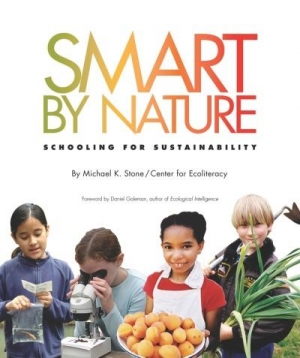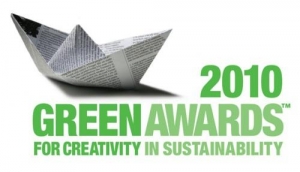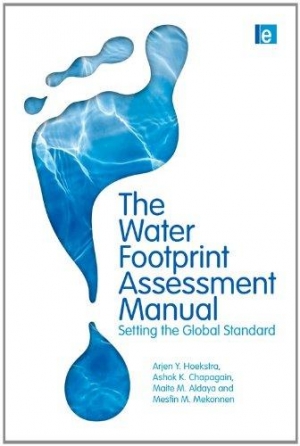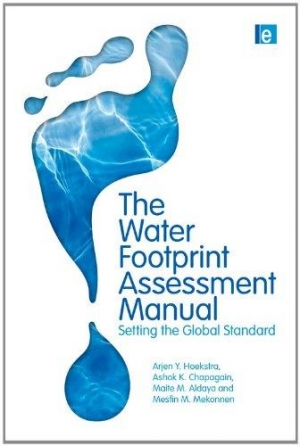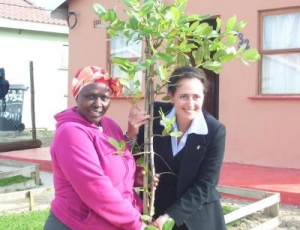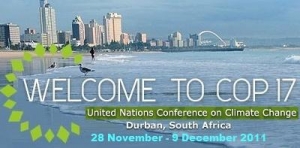Nature as teacher is the main principle behind The Center for Ecoliteracy's publication 'Smart by Nature - Schooling for Sustainability.. This requires thinking in terms of systems - one of nature's basic characteristics.
Now in its 5th Year, the global GREEN AWARDSâ„¢ are firmly fixed on the global eco calendar as the leading industry awards for sustainability in marketing and communications. The awards were established to reward organisations or individuals communicating their sustainability in a creative, engaging and original way.
The end of seafood by 2048! The ocean without fish. Imagine the global consequences. The award winning film THE END OF THE LINE by Rupert Murray had me sitting at the edge of my seat ' and swallowing back the tears.
The pressure on today's business world is not solely economic. Increasingly environmental issues are playing a role on the global stage.
'Design for Recycling' workshops encouraged packaging designers to consider life solutions for their products.
Three giants on the sustainable development front have partnered to plant 112 trees in the Mbekweni township just north of Paarl as part of Food and Trees for Africa's Trees for Homes initiative.
As South Africa struggles with the policy challenges of meeting the ever-growing demand by business and consumers for energy to fuel development and economic growth, households are faced with the increasing cost of electricity and other forms of energy, as well as the ongoing possibility of disruptive load shedding.
The Two Oceans Aquarium was recently awarded Platinum status by the Heritage Environmental Management Company in recognition of its efforts towards sustainability and reducing the impact of its operations on the environment. This achievement comes just four years after the first audit when the Aquarium achieved Silver status.
The increased importance of a reduction in energy costs to ensure an organisation's financial sustainability need no further emphasis in today's world. In many industries input energy costs have become comparable to that of raw input materials and limited resources are available to fund energy savings projects.
By 2050, humanity could devour an estimated 140 billion tons of minerals, ores, fossil fuels and biomass per year ' three times the current appetite ' unless the economic growth rate is 'decoupled' from the rate of natural resource consumption.
This is according to a new United Nations (UN) report released this Thursday and lead co-authored by Professor Mark Swilling, the Head of the Sustainable Development Programme of the School of Public Leadership (SPL) at Stellenbosch University (SU).
Green meetings and events is just one of the responsible tourism topics which will be discussed by local and international specialists at the upcoming Environmental Management in Tourism (EMiT) Conference which takes place from 9-10 November 2011, at the Sandton Sun Conference Centre in Johannesburg.
Business in Cape Town is encouraged to engage with the issues of climate change and sustainability as South Africa prepares to host COP17 in November in Durban.
Overseas, sustainable tourism is a booming industry, arising from the fact that today's travellers are prepared to pay more for a greener travel experience.
Only when organisations stop viewing sustainability as a destination, and start appreciating that it is an ongoing journey, will they recognise the responsibility they have to include as many fellow travellers as they can along the way.
A new biofuels technology company, Stellenbosch Biomass Technologies (SBMT), was launched this month. The company has the ability and expertise to lead Southern Africa towards a sustainable energy future.
British Airways, in partnership with the Solena Group, is to establish Europe's first sustainable jet-fuel plant and plans to use the low-carbon fuel to power part of its fleet from 2014. The new fuel will be derived from waste biomass and manufactured in a state-of-the-art facility that can convert a variety of waste materials, destined for landfill, into aviation fuel.
Our capitalist economy, together with low education levels, create a huge rift in most organisations between good intentions or policies and shopfloor adherence. Many organisations today have environmental/sustainability policies in place, which give voice to the senior management's commitment to environmental responsibility.



